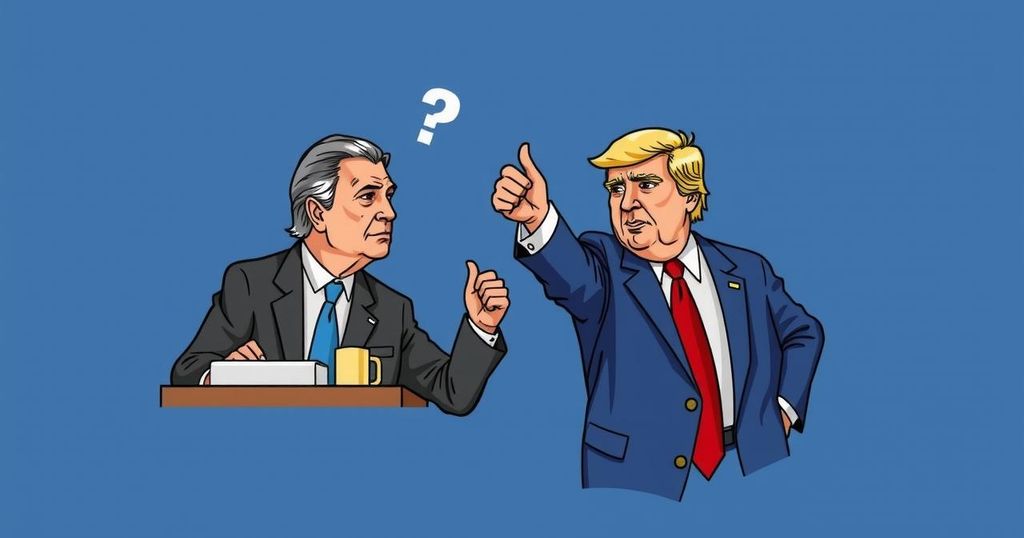US Recognizes Edmundo González as Venezuela’s President-Elect Amid Election Disputes

The U.S. recognized Edmundo González as Venezuela’s president-elect after a disputed election in July, where President Maduro claimed victory. Secretary Blinken emphasized the respect for Venezuelan voters’ will, amid ongoing allegations of electoral fraud. Despite international calls for transparency, Maduro’s regime remains resistant, with González currently in exile following an arrest warrant.
On Tuesday, the United States officially recognized Venezuelan opposition candidate Edmundo González as the “president-elect” of Venezuela, months after President Nicolás Maduro declared victory in the disputed election held on July 28. U.S. Secretary of State Antony Blinken emphasized the need to uphold the will of Venezuelan voters in a post shared on X. The Biden administration contended that González received the majority of votes in the election, yet it had refrained from labeling him as the president-elect until now. The Venezuelan National Electoral Council, dominated by loyalists to President Maduro, had announced his victory shortly after polls closed. Rather than providing comprehensive vote counts, the Council revealed limited results, which led the opposition to compile data from 80% of the voting machines. González, along with fellow opposition leader Maria Corina Machado, asserted that these records indicated he outperformed Maduro significantly in the election. In response to the recognition, González expressed gratitude, stating, “We deeply appreciate the recognition of the sovereign will of all Venezuelans.” Following the election, he fled to Spain after a warrant was issued for his arrest concerning the investigation into the publication of vote tallies. Meanwhile, Venezuela’s Foreign Minister Yván Gil criticized Secretary Blinken, urging him to reflect on his political failures rather than address Venezuela’s electoral issues. The Maduro administration has repeatedly dismissed international appeals for transparency regarding the vote, even after the U.S., the European Union, and neighboring countries called for detailed election records. The electoral outcomes have been deemed unreliable by experts from both the United Nations and the Carter Center, who observed the elections under the invitation of Maduro’s government, although they refrained from explicitly validating the opposition’s claims. Colombia’s President Gustavo Petro recently retracted his earlier support for the elections, branding them a “mistake” and further undermining Maduro’s legitimacy.
The recent developments in Venezuela reflect a significant rift between the Maduro administration and the opposition, particularly following the contested elections of 2023. Nicolás Maduro, who has ruled Venezuela since 2013, faced widespread allegations of electoral fraud and intimidation during the July elections. The National Electoral Council’s lack of transparency and the absence of detailed voting results raised suspicions about the election’s legitimacy. As opposition figures like Edmundo González emerge, backed by international recognition, Venezuela’s political landscape remains turbulent and divided.
The U.S. recognition of Edmundo González as the president-elect signifies a pivotal moment in Venezuela’s contentious political arena, where allegations of electoral fraud have persisted since the July election. This acknowledgment by the Biden administration adds pressure on President Maduro’s regime amidst increasing calls for electoral integrity. As the political situation evolves, further implications for governance and international relations remain to be seen, particularly with neighboring countries reevaluating their stances on Venezuela’s electoral process.
Original Source: apnews.com







